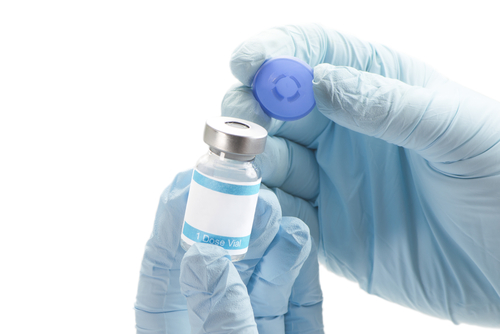Arzerra a Potential Alternative to Rituxan for Patients with AIHA and Lupus, Case Report Suggests
Written by |

Arzerra (ofatumumab) may be a promising alternative for the treatment of autoimmune hemolytic anemia (AIHA) in patients who also have systemic lupus erythematosus (SLE) and develop reactions to Rituxan (rituximab), a case report suggests.
The study, “Successful treatment of systemic lupus erythematosus-related refractory autoimmune hemolytic anemia with ofatumumab,” was published in the journal Lupus.
AIHA, when the immune system recognizes red blood cells as foreign and targets them for destruction, is common among patients with SLE. Cold agglutinin disease (CAD) is a type of AIHA.
B-cell-directed therapies — the cells that produce antibodies — such as Rituxan are often used as a second-line therapy to treat patients with resistant or refractory AIHA.
Rituxan is an engineered antibody developed by Roche to specifically target the cell surface protein CD20 often found on the surface of B-cells, resulting in their destruction.
However, infusion reactions occur in 10–15% of patients treated with Rituxan, limiting its continued use to those who have an initial good response to treatment. These reactions to Rituxan may be due to immune responses to the mouse component of the therapy.
Arzerra, by Novartis, is a fully humanized anti-CD20 antibody, meaning it may be a good alternative B-cell-depleting agent in patients who are intolerant to Rituxan.
In this study, a team of researchers report the case of a 49-year-old woman with lupus nephritis, one of the most serious manifestations of SLE that affects the kidneys.
In 2005, she was treated with Rituxan for a different condition but experienced a severe reaction that caused her to stop the treatment.
Six years later, she developed arthritis and had active and chronic lupus nephritis. She was treated with cyclophosphamide (a strategy to suppress her immune system), followed by a two-year maintenance regimen with the immunosuppressant CellCept (mycophenolate mofetil).
In 2017, laboratory findings showed she had AIHA, including a positive test for antiglobulins, indicating that the body was producing antibodies against red blood cells. In addition, she had high levels of anti-double-stranded DNA (dsDNA) antibody and low complement protein levels, which is often the case in lupus patients.
While treatment with 1 mg/kg/day of oral prednisone — a glucocorticoid — increased the patient’s hemoglobin levels, lab test results showed that she continued to have abnormal levels of haptoglobin, a component of red blood cells, and of lactate dehydrogenase (LDH, a marker of tissue damage).
The patient was then given a first dose of 300 mg of Arzerra into the blood, followed by four cycles of 1,000 mg. She did not experience any infusion-related reactions.
After two cycles of treatment, her hemoglobin levels were decreasing, and her levels of haptoglobin and reticulocyte counts (number of new red blood cells formed) were back to normal. She was able to decrease her oral prednisone dose to less than 15 mg/day.
Within seven months after the last dose of Arzerra and on less than 5 mg/day of prednisone, she showed no signs of SLE activity or red blood cell destruction (hemolysis). Moreover, the levels of a protein of the complement system — a set of more than 30 blood proteins that form part of the body’s immune defenses — were also normal.
Overall, “our report suggests that ofatumumab could constitute a potential alternative B-cell depletion therapy with an interesting residual effect on SLE-related AIHA patients who are intolerant to rituximab,” the researchers wrote. “This result should be confirmed by randomized control trials.”





